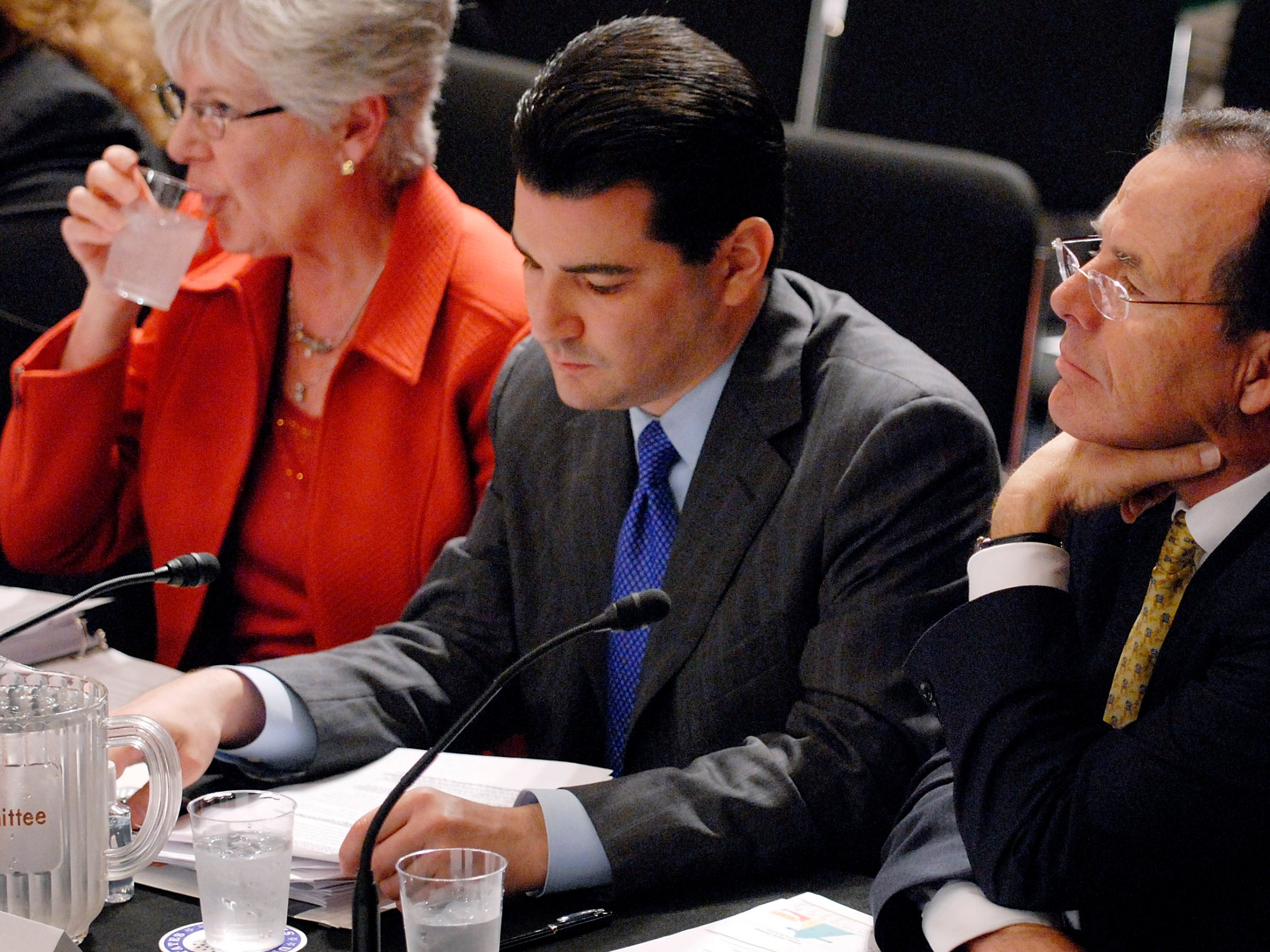
Dr. Scott Gottlieb is Trump’s nominee for commissioner of the Food and Drug Administration.
A White House official confirmed the appointment to Reuters.
Gottlieb is a resident fellow at the American Enterprise Institute and venture partner at New Enterprise Associates. He previously served as former deputy commissioner of the FDA during George W. Bush’s presidency.
Trump has said that he wants to deregulate the drug industry, which the FDA regulates, and has called the drug-approval process “slow and burdensome.”
“We’re going to be cutting regulations at a level that nobody’s ever seen before,” Trump said in a meeting with drug company executives on January 31. He estimated up to 80% of regulations would be slashed.
Over the years, Gottlieb has been vocal about his thoughts on the FDA. Here’s what his nomination could mean for the future of the agency.
- He says he wants to change up the approval process for “complex generics,” devices like the EpiPen or inhalers that competitors have a hard time getting approved. “When it comes to evaluating copies of these complex drugs, the fact is FDA doesn’t have very good tools and policies,” Gottlieb wrote in a 2014 opinion piece.
- Gottlieb told Stat News that two of his highest priorities would be to ensure the safety of blood supplies and come down on unsafe foods.
- He’s also been critical of the pace at which the FDA approves drugs, compared to other countries. In a 2010 opinion piece in The Wall Street Journal, Gottlieb accused the FDA of evading the law.
Gottlieb emerged early on as a favorite among members of the drug industry. Salim Syed, a biotech analyst at Mizuho, asked pharma executives who they would like to see as the next FDA commissioner. The overwhelming majority (72%) said Gottlieb.
“I believe Scott Gottlieb is the least likely to rail for the obliteration of the current efficacy, safety, risk-benefit model that is a foundation for advancement of new treatments in the United States,” one executive told Syed in the survey.
What the FDA does
The FDA is responsible for regulating food and drugs. It’s also responsible for regulating medical devices, blood donations, veterinary products, cosmetics, and tobacco. Trump’s comments have left the drug industry concerned about what deregulation could mean for the drug-approval process.
It was officially founded in 1906, when the Food and Drugs Act was signed into law, prohibiting misbranded food, drinks, and drugs from interstate commerce. This cracked down on misleading claims that treatments could “cure” patients.
Here are some examples of the FDA at work:
- It, of course, approves new drugs. In 2016, 22 new drugs made the cut, compared to 45 the year before.
- In September 2016, the FDA banned antibacterial soap based on evidence that showed that the soaps weren’t any better, cleaner, or safer than regular soap.
- The agency cracked down in April 2016 when diet supplements showed up containing a dangerous stimulant.
- The FDA keeps track of any side effects that come up after a drug gets approved, and can make changes accordingly. In July, the agency changed the label on a commonly used class of antibiotics to reflect more potentially permanent side effects.
- It makes sure ads for drugs aren’t misleading.
SEE ALSO:Trump is promising big changes at the FDA — here’s how drugs are approved today
DON’T MISS:The world’s biggest drugmaker just pulled back the curtain on drug pricing
NOW WATCH: This is why Wall Street is able to stay one step ahead of federal investigations













